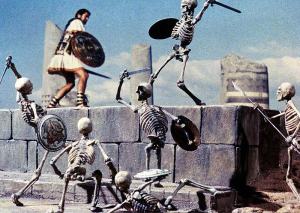
Tum secreta trahens Phoebeum ad litora Mopsum
‘quaenam’ ait ‘ista lues aut quae sententia divum?
decretusne venit fato pavor an sibi nectunt
corda moras? cur immemores famaeque larisque
angimur aut pariet quemnam haec ignavia finem?’
‘Dicam’ ait ‘ac penitus causas labemque docebo.’
Mopsus et astra tuens: ‘non si mortalia membra
sortitusque breves et parvi tempora fati
perpetimur, socius superi quondam ignis Olympi,
fas ideo miscere neces ferroque morantes
exigere hinc animas redituraque semina caelo.
quippe nec in ventos nec in ultima solvimur ossa;
ira manet duratque dolor. cum deinde tremendi
ad solium venere Iovis questuque nefandam
edocuere necem, patet ollis ianua leti
atque iterum remeare licet. comes una sororum
additur et pariter terras atque aequora lustrant.
quisque suos sontes inimicaque pectora poenis
implicat et varia meritos formidine pulsant.
at quibus invito maduerunt sanguine dextrae,
si fors saeva tulit miseros, sed proxima culpa,
hos variis mens ipsa modis agit et sua carpunt
facta viros: resides et iam nil amplius ausi
in lacrimas humilesque metus aegramque fatiscunt
segnitiem, quos ecce vides. sed nostra requiret
cura viam. memori iam pridem cognita vati
est procul ad Stygiae devexa silentia noctis
Cimmerium domus et superis incognita tellus
caeruleo tenebrosa situ, quo flammea numquam
Sol iuga sidereos nec mittit Iuppiter annos.
stant tacitae frondes immotaque silva comanti
horret Averna iugo. specus umbrarumque meatus
subter et Oceani praeceps fragor arvaque nigro
vasta metu et subitae post longa silentia voces.
ensifer hic atraque sedens in veste Celaeneus
insontes errore luit culpamque remittens
carmina turbatos volvit placantia manes.
ille mihi quae danda forent lustramina caesis
prodidit, ille volens Erebum tenebrasque retexit.
ergo ubi puniceas oriens accenderit undas,
te socios adhibere sacris armentaque magnis
bina deis, me iam coetus accedere vestros
haud fas interea, donec lustralia pernox
vota fero. movet en gelidos Latonia currus:
flecte gradum, placitis sileant age litora coeptis!’
(Valerius Flaccus, Arg. 3.373-416)
Then, drawing Mopsus, the seer of Phoebus, to a sequestered region of the shore, “What means,” he asks, “this plague, or what is the mind of the gods? Is it by fate’s decree this terror comes? or do hearts contrive their own anxieties? Why forgetful of home and renown do we suffer anguish, or what end will this faint-heartedness bring to pass?” “I will tell thee,” said Mopsus, “and wholly explain the causes of this plague;” then, looking at the stars, “If we, who once were fire and high Olympus’ kin, suffer mortal frames and brief apportionments and a short span of destiny, it is not therefore right to engage in reckless slaughter and to drive hence with the sword souls that yet would tarry, and seeds that will one day return to heaven; for we are not dissolved into the breezes or into mere bones at the last: anger abides and grief endures. Thereafter when they are come to the throne of awful Jove and have set forth all the sorrowful story of their dreadful end, the gate of death is opened for them and they may return a second time; one of the Sisters is given them as a companion, and they range together over lands and seas. Each involves in penalties the guilty souls of his own foes; they rack them with various terrors after their deserving. But those whose hands have dripped with blood unwillingly—or were it cruel mischance, though nigh to guilt, that swept away the wretches—these men their own minds harry in divers ways, and their own deeds vex the doers; languid now and ventureless they decline into tears and spiritless alarms and sickly sloth: such thou doest here behold. Yet shall my thoughtful care seek out a way. Known long since to the unforgetting seer there lies, where afar the land slopes down to silence and Stygian night, the abode of the Cimmerians, a region that the Olympians know not, a land dark and desolate gloom, where the Sun never drives his flaming car and Jupiter sends not the star-appointed seasons. Soundless and still are all the branches, motionless and stark on the luxuriant ridges stand the vernal woods; below is a cavern and the winding way of the spirits and Ocean’s headlong crash, waste stretches of black dread and after long silences sudden cries. Here Celaeneus, sitting sable-shrouded and sword in hand, cleanses the innocent from their error, and remitting their fault unwinds a spell to appease the angry shades. He it was who taught me what lustrations should be made to the slain, he of his good pleasure opened the earth to Erebus below. When therefore the orient sets the crimson seas aflame, do thou summon thy comrades to the sacrifice, and bring two steers to the mighty gods; for me were it wrong meanwhile to approach your gathering, until I spend the night in cleansing prayers. Lo! Latonia’s cold chariot is on its way; turn thy steps, and see that the shores are silent for thy placating deeds.” (tr. John Henry Mozley)


